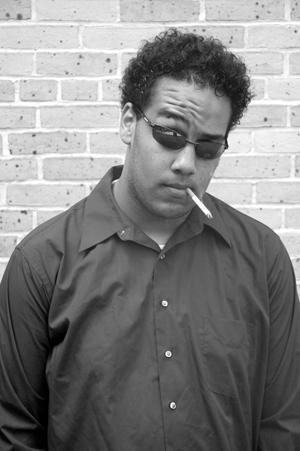f you’ve walked around campus the day of an LSU football game, you’ve seen how Louisianians feel about alcohol (for those of you unfamiliar with tailgating etiquette around campus, wait until Saturday). Kegs, coolers and shots are consumed in all directions, as Tiger fans get liquored up before the game. This will be my third season of LSU football as a student, and I’m still not 21.
I turn 21 just 12 days after Mardi Gras next year – but I’m not bitter. Many people think I would be a little more enraged, but it’s not as if I can’t get alcohol in New Orleans – it’s just the principle of the thing. If every bar, liquor store and restaurant all of a sudden decided to enforce the drinking age, I’d be out of luck. But The Big Easy is known as such for many reasons, one of them being the ease with which underage New Orleanians can acquire alcohol. The age law has long since become obsolete.
According to the National Institute of Health, the National Minimum Drinking Age Act of 1984 is the law concerning underage drinking. While not specifically mandating an age limit, it requires a 10 percent decrease in federal highway funding for states that don’t enforce the minimum drinking age of 21, forcing states into submission. Barring certain exceptions, it is illegal for me to purchase alcohol in the United States and most Middle Eastern countries like Saudi Arabia, Pakistan, and Iran. In the rest of the civilized world, the minimum drinking age varies from 16 to 20.
I can vote for my president, my governor and my mayor, but I can’t have a drink. I can be shipped to Iraq to fight for my country (i.e. going to kill people), and I can have a drink in Baghdad, but I can’t have a drink in America. I can smoke cigarettes, which have been all but proven to give me and the people around me lung cancer, but I can’t have a drink.
Historically, preventing people from drinking hasn’t gone as smoothly as people initially hoped. In colonial America, alcohol was considered a gift from God, but abuse of this gift came from the Devil. As Paul Aaron and David Musto astutely observed in “Alcohol and Public Policy: Beyond The Shadow of Prohibition,” “Drink itself was not looked upon as culpable, any more than food deserved blame for the sin of gluttony. Excess was a personal indiscretion.” In the 10 years leading up to Prohibition in the 1920s, alcohol consumption was actually on the decline. When the 18th Amendment illegalized alcohol, crime went up, became organized and infiltrated many government offices looking to become corrupt. When the 21st Amendment ended Prohibition, alcohol bootleggers found themselves out of work, as alcohol was re-legalized.
According to its Web site, Mothers Against Drunk Driving claims credit for increasing the drinking age to 21. In 2005, on the 21st anniversary of the passing of the National Minimum Drinking Age Act, Glynn Birch, the first male president of MADD, said, “because of the 21 law, underage drinking deaths have been cut from 8,000 annually in the 1980s to 6,000 per year today,” according to the Pittsburgh Post-Gazette. I in no way disagree with the message that MADD puts out: drinking and driving is fatal. But how the organization arrived at “21” remains controversial. A quick look on the organization’s Web site provides a test on how alcohol affects the brain. “Apparently on studies using animals, young brains are vulnerable to dangerous effects of alcohol, especially on learning and memory function.” I’m not sure if animals can drive, but if they can, they had better remain under the legal limit.
Many people advocate the lowering of the national drinking age to 18, most notably the National Youth Rights Association, a non-profit organization dedicated to fighting for the civil rights and liberties of young people. According to its Web site, they believe American youth alcohol policy “should recognize the inevitability of alcohol consumption among youth and seek to reduce the harm of that alcohol use, rather than unrealistically try to keep young people from drinking at all.”
Underage drinking doesn’t end with a law. It isn’t curbed by police officers or bouncers at nightclubs. Like everything else in this country, we need to practice proper education and responsibility, and it comes from our teachers and our parents. Youths should be educated on the effects of alcohol from within the family, not from a sign that reads “We ID Under 21.” If parents had better control over the actions of their children, there would be no need for a minimum drinking age. I don’t drink to get drunk, but I’m not going to pretend I haven’t before. I understand drinking can be great, but it can also be deadly. Instead of perpetuating the hypocrisy of the 21 drinking age, we need to better inform teens about the effects of alcohol so they can make an educated decision for themselves.
Be careful, be responsible, but at the same time, laissez les bons temps rouler. Let the good times roll.
—-Contact Eric Freeman, Jr. at efreeman@lsureveille.com
Drinking age cannot be regulated by laws
September 4, 2007

Eric Freeman



